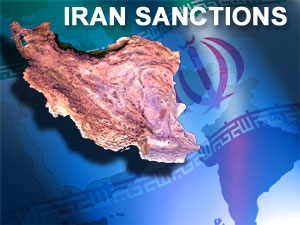 Scientific journals are being asked to help tighten U.S. trade sanctions on Iran. On 30 April, the Dutch publishing behemoth Elsevier of the Netherlands sent a note to its editorial network saying that all U.S. editors and U.S. reviewers must "avoid" handling manuscripts if they include an author employed by the government of Iran. Under a policy that went into effect in March -- reflecting changes in a law passed by the U.S. Congress in December -- even companies like Elsevier not based in the United States must prevent their U.S. personnel from interacting with the Iranian government.
Scientific journals are being asked to help tighten U.S. trade sanctions on Iran. On 30 April, the Dutch publishing behemoth Elsevier of the Netherlands sent a note to its editorial network saying that all U.S. editors and U.S. reviewers must "avoid" handling manuscripts if they include an author employed by the government of Iran. Under a policy that went into effect in March -- reflecting changes in a law passed by the U.S. Congress in December -- even companies like Elsevier not based in the United States must prevent their U.S. personnel from interacting with the Iranian government.The sanctions, aimed at punishing Iran for its pursuit of nuclear technology, have been broadened somewhat from previous rules issued by the enforcement agency, the U.S. Office of Foreign Assets Control (OFAC), a division of the Treasury Department.
According to a treasury official,�OFAC has not changed its "general license" policy for journals; it still allows them to publish articles authored by nongovernmental scientists from Iran and other sanctioned countries. The new wrinkle is that OFAC insists that all U.S. citizens, no matter who employs them, comply with the sanctions against papers authored by governmental researchers. That apparently prompted Elsevier to issue a warning to its employees.
Elsevier spokesperson Harald Boersma explained in an e-mail that the new restrictions are expected to affect a small number of papers and that the company had implemented "more specific sanctions � over the past year or two" as a result of U.N. recommendations.
In recent changes � U.S.-owned scientific and medical journals would violate OFAC regulations if they handle scientific manuscripts where any of the authors are employed by the government of Iran. This includes research departments of nuclear facilities as well as the various oil and gas companies which are deemed to be entities of the Government of Iran. The sanctions do not apply to manuscripts from academic and research institutes and manuscripts originating from non-governmental clinical settings, such as hospitals [or] clinical practices. This means that the sanctions only apply to a very small part of research papers coming out of Iran. Our recent communications with editors were motivated out of concern that U.S. citizens acting as editors of our journals might also be subject to personal liability.
In a note to editors (a copy of which was obtained by�ScienceInsider), Elsevier gives advice on what a manager should do if he or she can't find a non-U.S. person to work on a paper that requires special handling: "Please reject the manuscript outright." According to the note, the rejection should apologize to the submitter and explain that because of U.S. sanctions, "we are unfortunately unable to handle your manuscript."
OFAC tangled with scientific journals almost a decade ago when it proposed much harsher restrictions on communications from Iran. That led to an organized protest by the American Institute of Physics, the Association of American Publishers, and others,�resulting in the current understanding: OFAC permits the exhange of scientific but not government-sponsored communications from Iran.
Several other scientific publishing organizations�including AAAS, the publisher of�ScienceInsider�said that they did not see a need to change the way they handle manscripts at present.
By�Science�Insider
The Iran Project is not responsible for the content of quoted articles.










